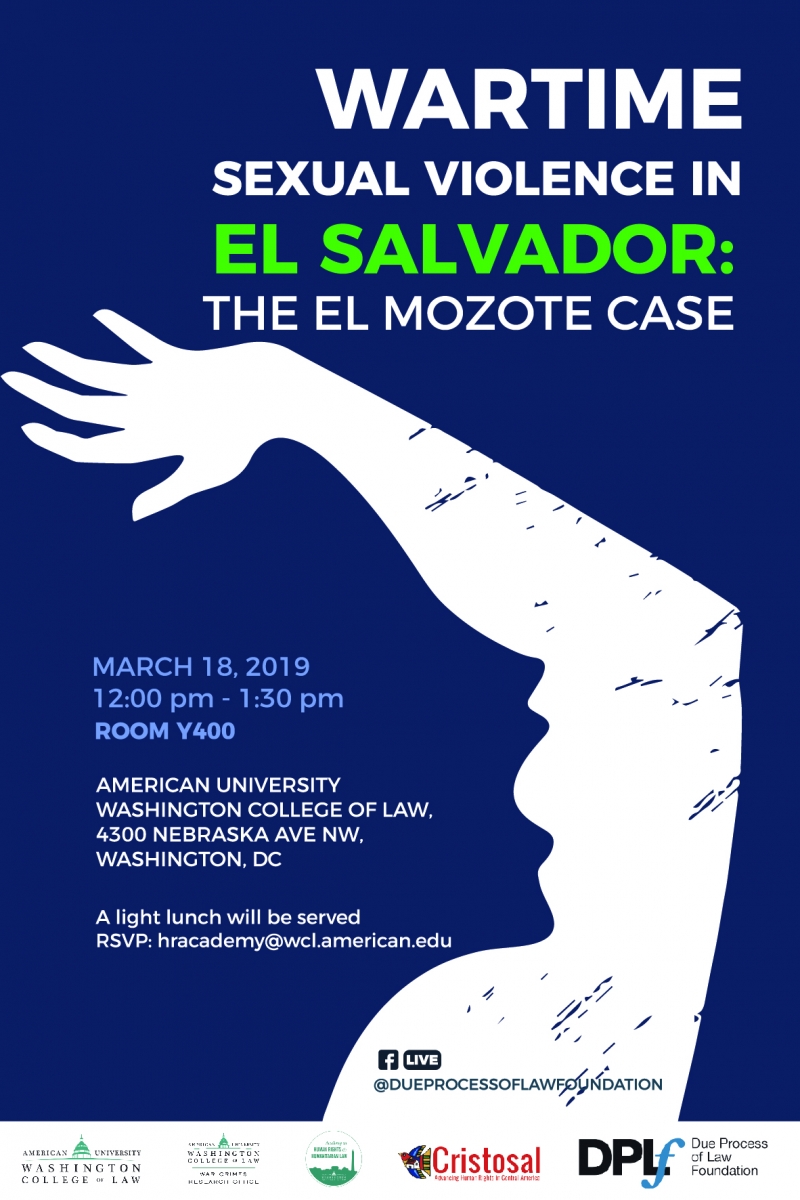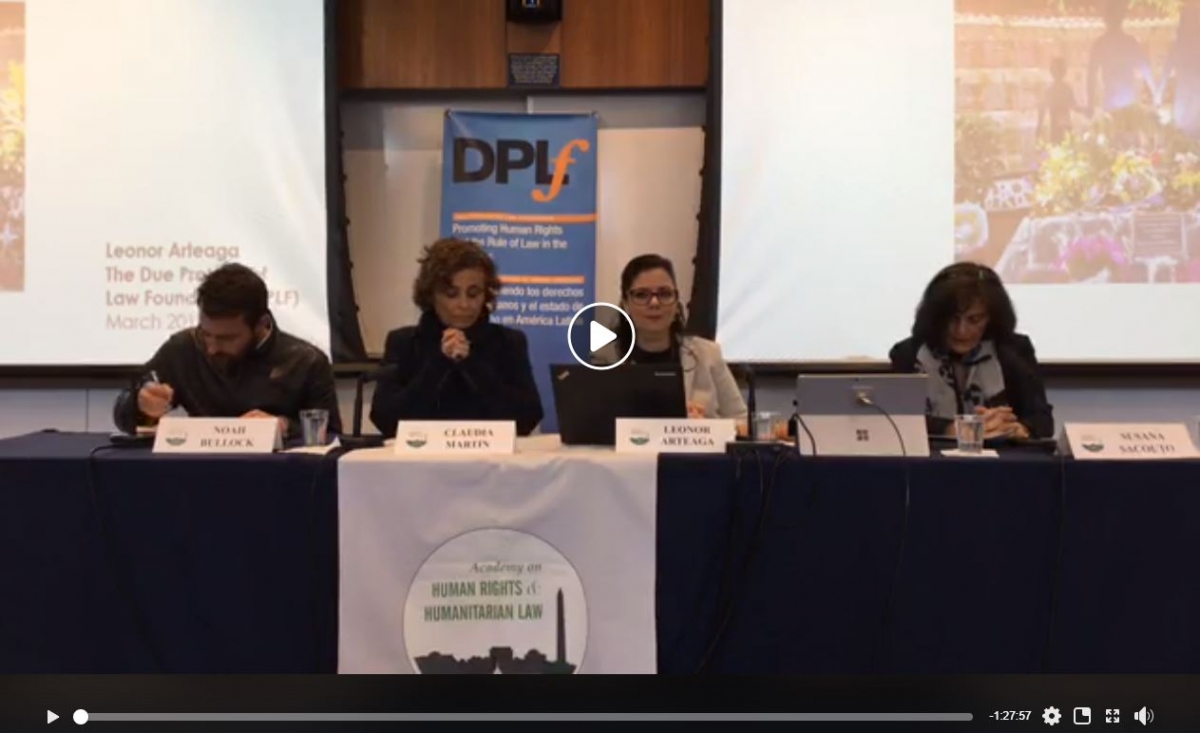Confirm your attendance here.
Sexual violence during the armed conflict in El Salvador, as in other wars, was not an isolated instance of one or some men “unable to control their instinct,” nor were the men provoked by women’s “irresponsible” behavior. This was an instance of terror and degradation strategies at the national and hemispheric level.
Today, 27 years since the end of the war in the country, these criminal acts have been kept covered up. Although they are spoken of in hushed voices, but there are important initiatives being carried out to break the silence. One of these is the case of the El Mozote massacre, which was reopened by a local court once the amnesty law was revoked in 2016. At present, this is the only case referencing wartime atrocities that is showing progress before the justice system in El Salvador.
The El Mozote Massacre is a case in which a series of killings took place against civilians by the Salvadoran Atlacatl Armed Forces Batallion during a military operation taking place on December 10, 11, and 12, 1981, in the surrounding areas of El Mozote including La Joya, Los Torilos, among others, in the northern department of Morazán. According to the Truth Commission, approximately 900 rural men, women, and children were killed during this operative. Therefore, it is considered the gravest act of violence against a civilian population by state agents and the worst massacre in the American region in recent history.
In December 2012, the Inter-American Court of Human Rights upheld that the acts committed in this massacre are classified as grave human rights violations and international crimes, including sexual violence. In the current trial, the 18 former high ranking military officials accused of being the perpetrators in the case are being tried for crimes of sexual violence, among others, for their role as the leading command of the Armed Forces at the time.
On June 24, 2018, American University Washington College of Law, with support from the Due Process of Law Foundation (DPLF), presented a written Amicus Curiae before the Second Court of First Instance of San Fransisco Gotera, Morazán, to be taken into consideration during the criminal process that investigates the perpetrators of the crimes committed during the massacre. The Amicus provides arguments so that the court may effectively investigate the sexual crimes committed in the case, which would have an important symbolic effect for the victims and society as it would reflect the grave damage caused and degree of intention.
To accompany the presentation of the Amicus, we are holding a second public event (see video of the first here) on the latest developments on this case, the sexual violence still present in the country, and the prosecution experiences for these crimes in Latin America.







